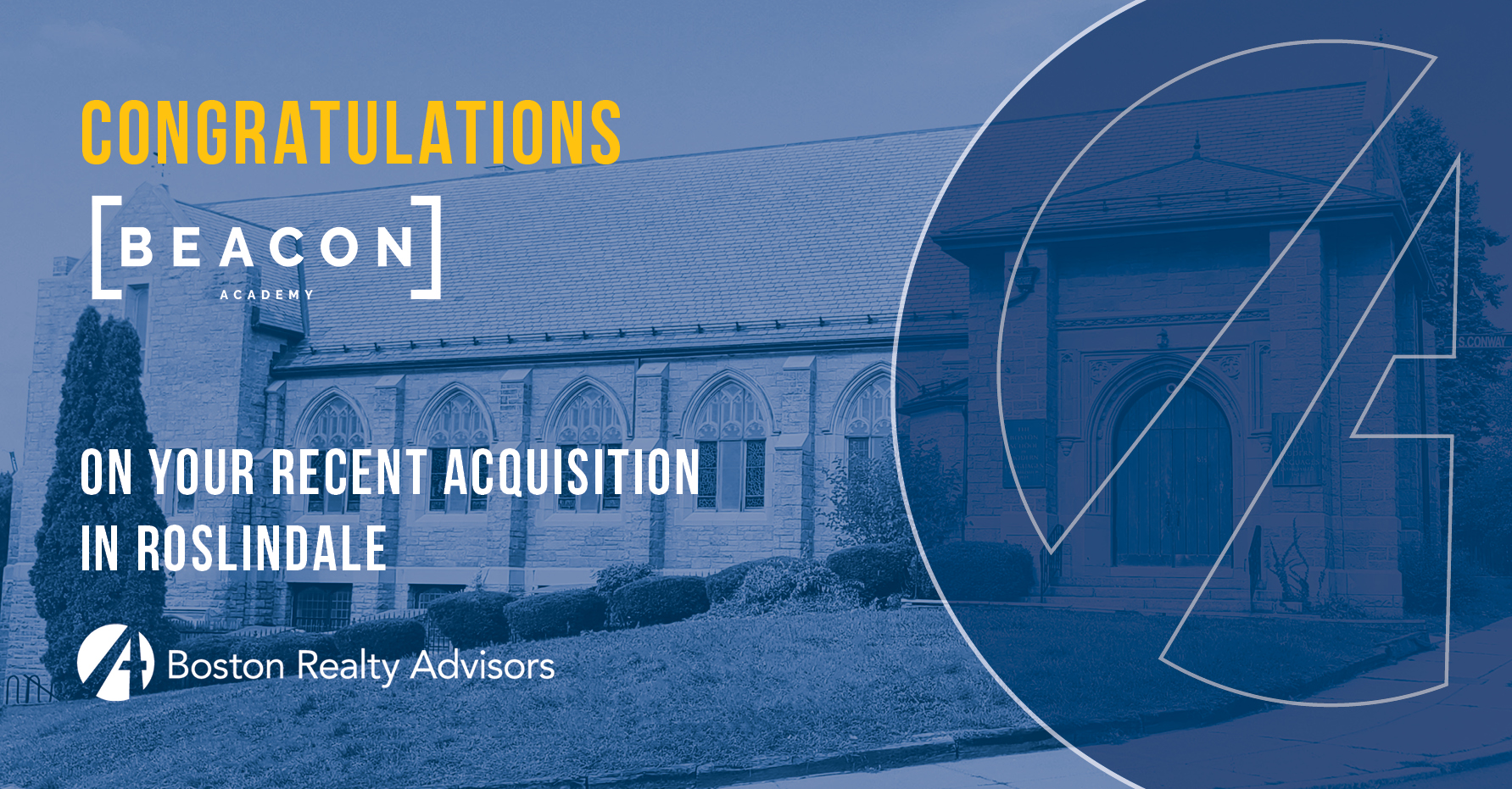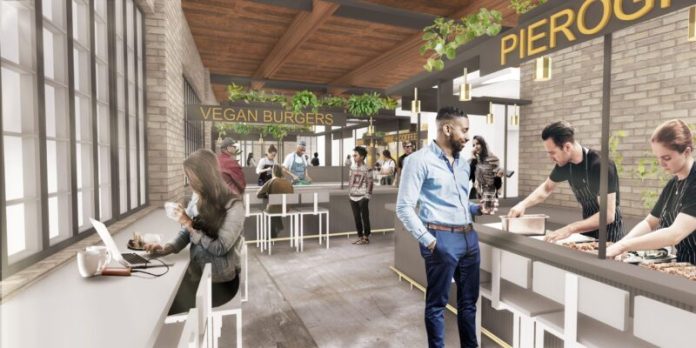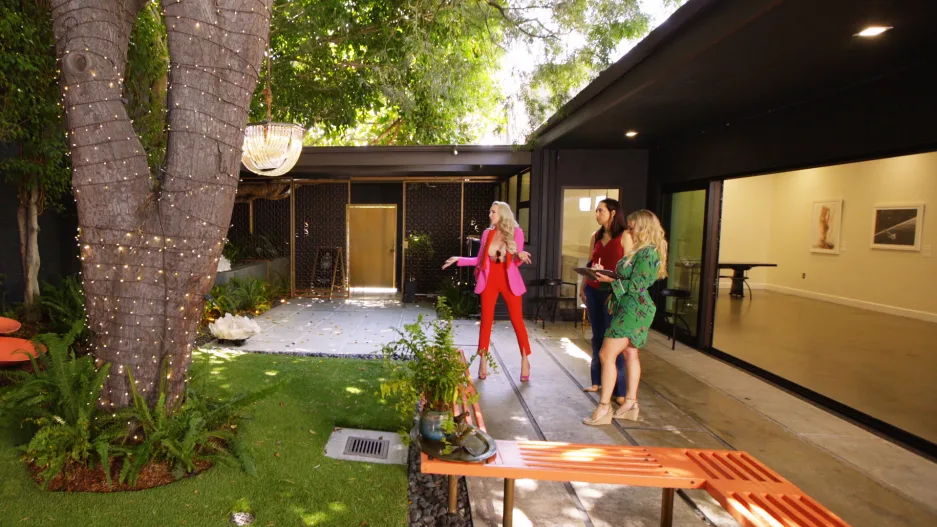Charlestown, Mass. – Foundation Kitchen, a shared culinary workspace, co-founded by husband and wife team, Ciaran Nagle and Tara Novak, has signed a 5,723 square-foot lease to open a new culinary production and dining destination at The Graphic Lofts in Charlestown MA.
This new location, located directly across the street from the MBTA’s Orange Line Sullivan Square Station, will feature a café, wine bar, and food stalls which will be open to the public seven days a week. The space will also feature an ongoing roster of cooking classes, special events, and culinary pop-ups served from a shared kitchen. Foundation Kitchen is scheduled to open in the first quarter of 2021.
The lease for Foundation Kitchen was negotiated by Stephen Pleines from Eastern Land Company on behalf of the tenants, and Joe Wagner from Boston Reality Advisors on behalf of Berkeley Investments, which owns and developed The Graphic Lofts.
Berkeley has long recognized the value of placing innovative food and beverage concepts in rapidly growing neighborhoods. Young Park, president of Berkeley Investments, is credited with introducing Barbara Lynch to the Fort Point neighborhood in 2008 by offering the company’s FP3 residential building as home to Drink, Sportello and Menton. Likewise, Park persuaded the award-winning culinary team of Row34 to bring their seafood restaurant to Berkeley’s loft rental project at 381 Congress Street in the same neighborhood. Park says, “The addition of Foundation Kitchen to The Graphic Lofts and the community of Charlestown is a home-run for everyone involved. The concept is one that will appeal to multiple audiences who are essential to the neighborhood including residents, nearby workers and commuters. The unique concept meets a variety of needs in the market, and we know it will be incredibly popular when it opens.”
Kevin Longo, Berkeley’s Asset Manager, also adds that the Foundation Kitchen model is a well-suited amenity for the building and its residents: “It will bring the community together by offering a unique hyper-local food and beverage experience with ever changing options from a diverse group of talented small businesses. It’s the type of concept that excites our residents and community members, and perfectly supports their urban lifestyle.”
From a food and beverage standpoint, plans call for Foundation Kitchen to offer breakfast, lunch and dinner menu items, along with craft beers and wine, either to-go, or for in-restaurant dining through their cafe and wine bar. Owner Ciaran Nagle says the market and location are prime for this type of carry-out dining option, especially for those that reside above Foundation Kitchen in The Graphic Lofts, and those that live nearby in Hood Park and Charlestown. He says, “The impacts of COVID-19 have put more focus on carry-out and at-home dining, and our business model was set-up perfectly for that well before the pandemic adversely impacted the restaurant community. Given this shift and increased demand for more healthy, local grab-and-go dining options, takeout and delivery have skyrocketed in popularity, as customers seek creative alternatives to cooking at home night after night.” Nagle says Foundation Kitchen members will offer creative culinary packages like family-style meals, curated make-at-home meal kits, farmers’ market delivery services, and wine-and-food pairings.
Those who choose to dine in Foundation Kitchen’s Food Hall will experience indoor and outdoor spaces that take their design cues from the local neighborhood, “which is rich with creativity and innovation,” says Kevin Cromwell of Cromwell Consulting, a food service consulting firm that helped design and layout the space. “Our goal was to create an environment that allows quality culinary entrepreneurs a place to flourish.”
Likewise, Rashmi Ramaswamy, lead architect of SHED Studio, and designer Jack Cochran, were inspired by The Graphic’s industrial elements and the important work that Ciaran and Tara are doing to support diverse, local entrepreneurs. They both thought about the establishment’s namesake – a “foundational” kitchen – and created a space that celebrates the building’s architecture, while also connecting guests to the places and landscapes where food comes from. Ramaswamy and Cochran agree: “With abundant plantings, a warm, atmospheric mural, and exposed brick and massive wood beams, the marketplace will unite the public and global cuisines together to create a space that’s both transportive yet also very much part of the history and evolution of Charlestown.” All of the parties involved are committed to creating a space that follows COVID-19 CDC and State of Massachusetts health guidelines.
In addition, as a family-owned-and-operated business, Owner Tara Novak says Foundation Kitchen will fill a void by providing a space that’s inspiring to other small to mid-size food companies. “We presently have one boutique shared commercial kitchen located in Union Square, Somerville and we’re excited about this new location opening in Charlestown,” she says. “This shared kitchen concept is licensed for shared-use food production, and multiple other businesses may operate from our new kitchen at The Graphic. All member companies working out of our space have their own licenses, insurance, and certification, and either work from their own designated studio space or from their own pre-scheduled space within the shared kitchen.”
Foundation Kitchen already has close to twenty members who cite multiple reasons for using shared kitchen space including the lack of commercial kitchen space in the Boston metro area, the cost of incurring long-term leases, and the large overhead costs associated with a commercial kitchen facility. Novak adds, “We take care of all of those elements by providing a facility where companies can come in and focus on their core business – making and selling food that customers enjoy and appreciate. We also work very hard to curate a community of like-minded businesses within our facilities, creating a place where owners and employees can network, while supporting, mentoring, and motivating each other.”
Adam Dziki of Wild Fox Pierogi, a Foundation Kitchen member since 2017, looks forward to being a part of the new space at The Graphic when it opens in early 2021. Dziki says, “Wild Fox serves delicious cuisines inspired by our Polish and Portuguese heritages. We’re also a family owned business and we look forward to offering lunch and dinner options that are packed with flavor, including our signature ‘Bigger than Babcia’s’ scratch-made pierogi, as well as soups, sandwiches, salads, and more.”





